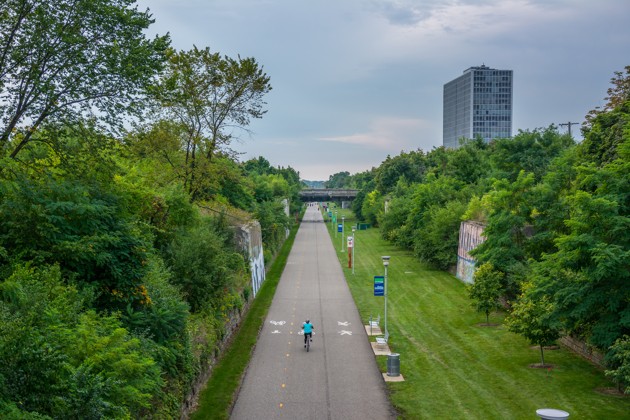
A big question in national politics this year is what exactly “engagement” means, beyond showing up at rallies. As Yoni Appelbaum pointed out last week, Donald Trump supporters are notable for their low level of other forms of civic engagement: clubs, teams, volunteer groups, or anything that involves being more than a spectator. Although Bernie Sanders still has fewer votes and delegates than Hillary Clinton, his success in the caucuses suggests how engaged his supporters have been — and so the question for the Democratic party and the progressive cause is how many of them stay engaged this fall and beyond. And so on.
A big ongoing theme of the “American Futures” reports my wife Deb and I have presented is how different you would feel about circa-2016 American society if you observed it community by community, than if you mainly watched the political rallies and debates. In nearly every place we’ve gone, it’s been easy rather than hard to find groups and individuals devoting time, money, passion, ingenuity to improving various aspects of their civic life. You can read about it here.
Thus I was very interested to see the announcement yesterday from the John S and James L. Knight Foundation of Miami, whose motto emphasizes its support for “informed and engaged communities,” of the winners of its Knight Cities Challenge Grant.
This Knight program is in its second cycle. Two years ago, it chose 32 winners. This time, it awarded a total of $5 million to 37 winning programs, chosen from 158 finalists and more than 4400 total entries.
According to Knight, they judged the entries on three main criteria: